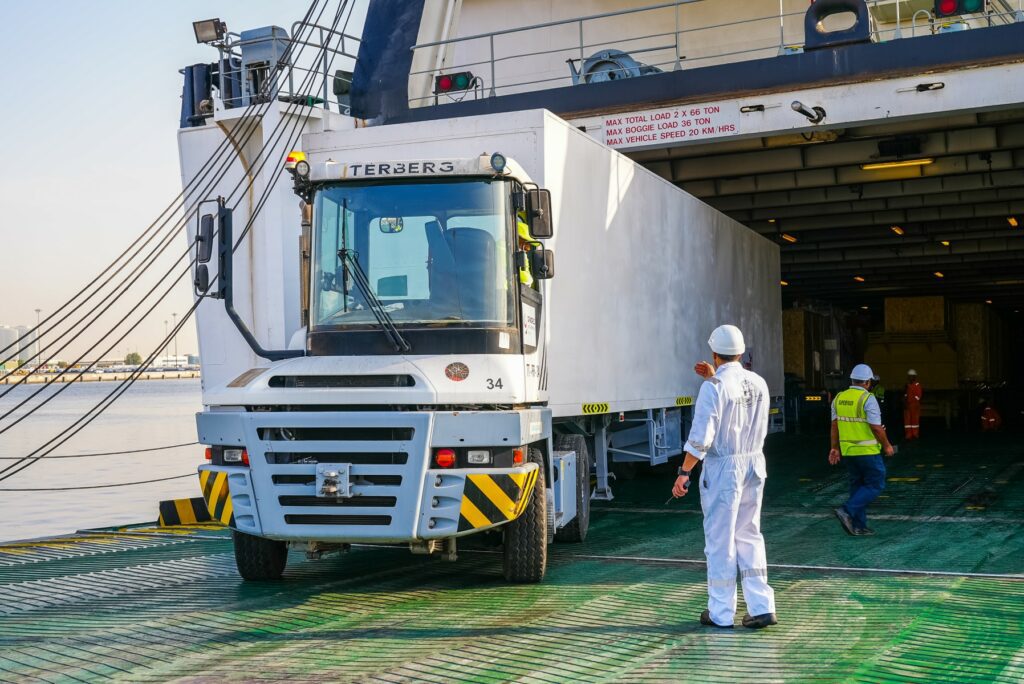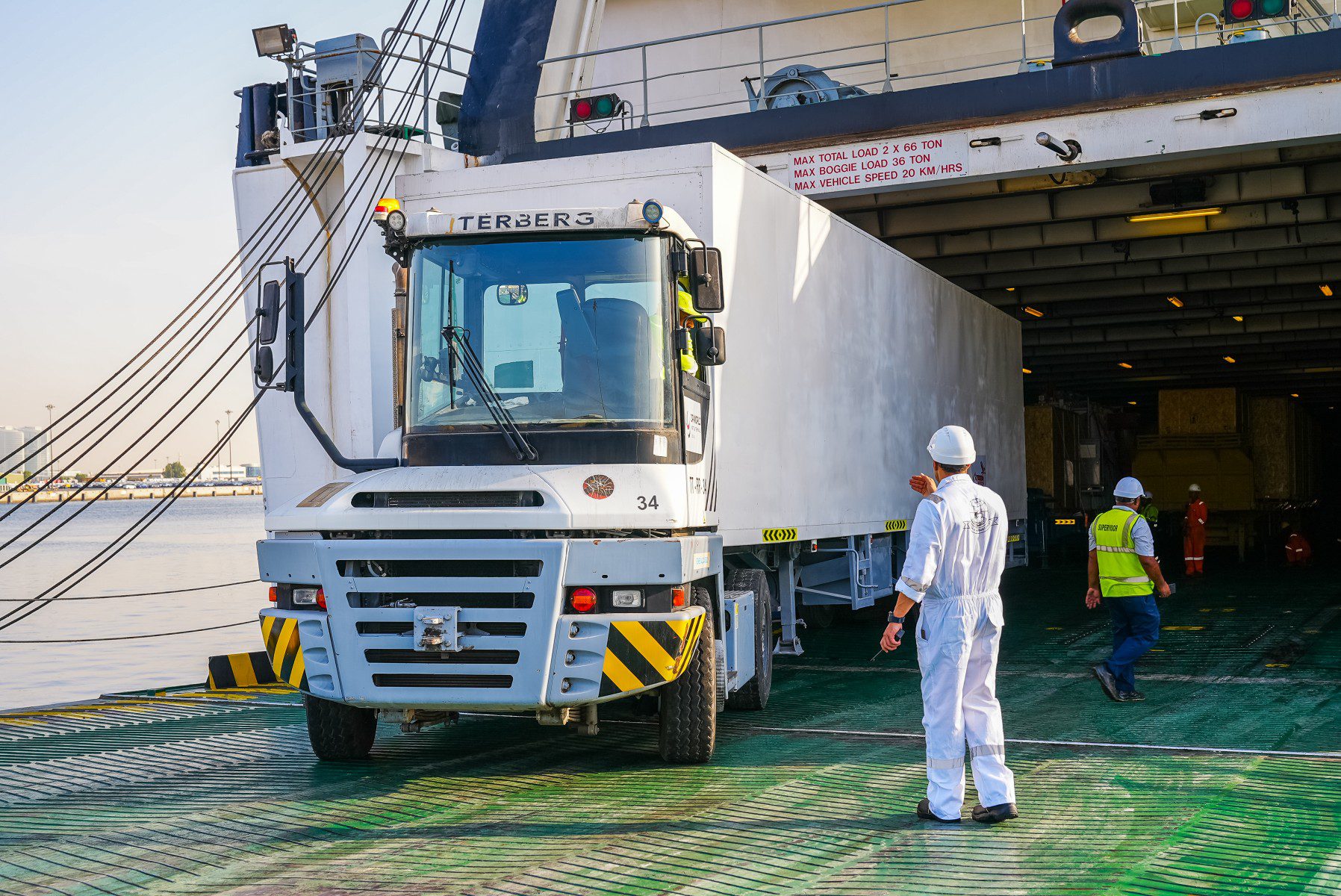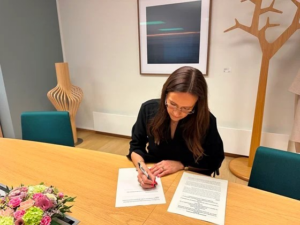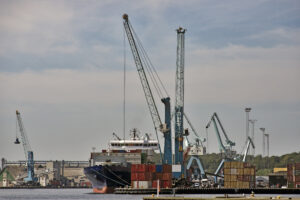
Photo credit: DP World
Dubai-based supply chain solutions giant DP World has launched the first direct ro-ro freight service between the United Arab Emirates and Iraq. The company claims the new service will make the flow of goods between the two Middle East countries faster, safer and more efficient.
The service takes approximately 36 hours to travel between Jebel Ali Port in the UAE and Umm Qasr Port in southern Iraq. It offers a new route between the two countries for road trailers, alleviating challenges faced by customers using cross-border land transport, which can take up to 14 days.
Unaccompanied trailers are loaded on to ro-ro freight vessels, leaving the driver and cab behind at the port. Once the trailer reaches Umm Qasr Port, an Iraqi truck can drive it to its final destination anywhere in the country. Once delivered, the empty trailer is then returned to Umm Qasr and shipped by to Jebel Ali.
Until now, goods transported by road from the UAE to Iraq must be transloaded which is a time consuming exercise of transferring cargo from the original truck to a locally-licensed vehicle. It is also risky, exposing the cargo in terms of damage, contamination and security.
The unaccompanied trailer service, says DP World, allows cargo owners and logistics companies to load a UAE-plated trailer in their local warehouse, ship it to Iraq and get the same trailer back, without the cargo having to change hands along the route.
“This is especially useful for transporting palletised or project cargo – large, heavy duty, or complex pieces of equipment, due to the greater payload capacity of road going trailers. Purpose-built ro-ro freight vessels allow customers greater flexibility in the planning and movement of over-dimensional packages on low-bed and heavy-axle trailers,” in accordance with DP World.
Jesper Kristensen, Group Chief Operating Officer of DP World Marine Services, said: “The launch of this new route is a step change in our service offering in the UAE. Iraq’s economy is growing rapidly, but until now it relied on transit through its neighbours for its import and export needs. Our new direct service starts to address this, opening a new more efficient trade route for the country.”



